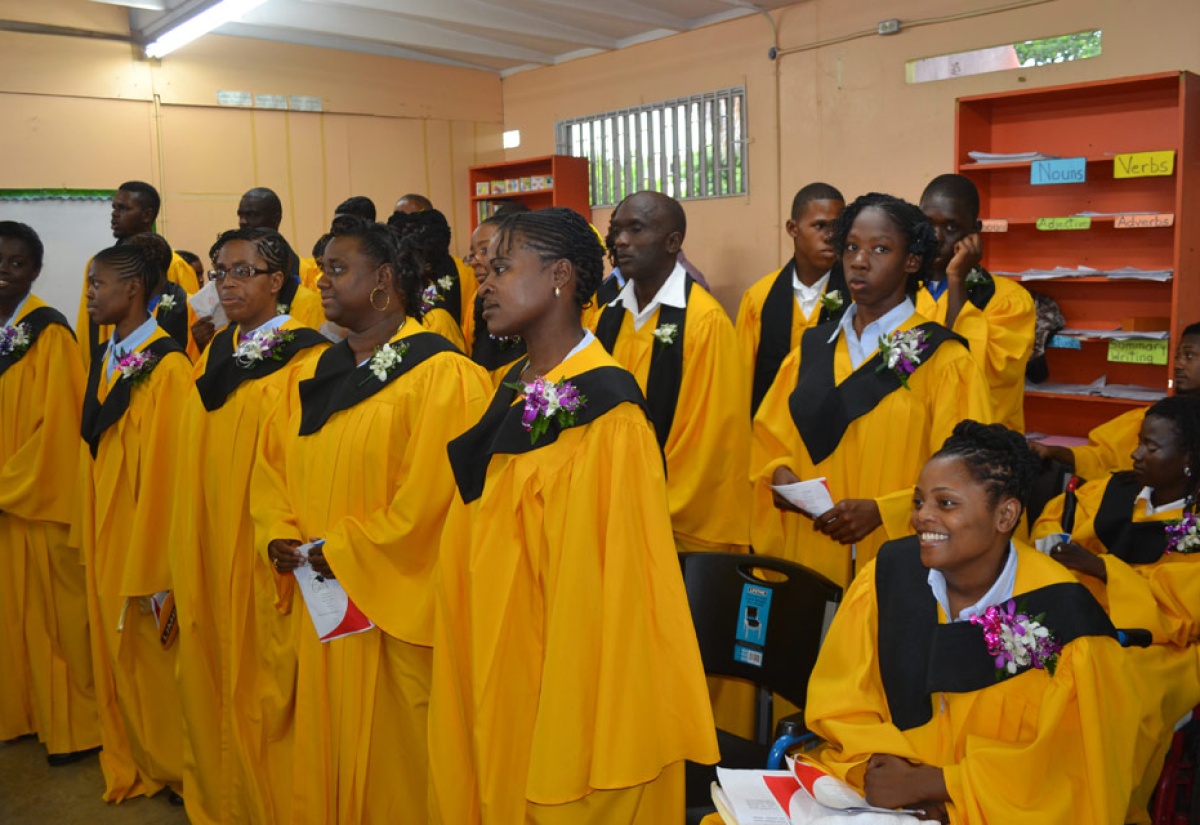Thirty Students Graduate from Abilities Foundation
By: , June 29, 2013The Full Story
Thirty students, some with severe hearing, visual, and physical disabilities, were presented with certificates on June 27, after successfully completing studies at the Abilities Foundation.
Speaking at the graduation ceremony, held on the grounds of the institution, at 191 Constant Spring Road, Kingston, Young Men’s Christian Association (YMCA) Board Director, Sarah Newland-Martin, commended the graduates on their achievements, and implored them to continue striving for excellence.
She urged them to maintain high standards in their endeavours, pointing out that despite their challenging circumstances, they are equally important to the society and capable of attaining and fulfilling their highest potential.
Mrs. Newland-Martin also lauded the parents, family members, and caregivers who supported the graduates during their course of study, against the background of what she said are the varying challenges encountered over the years.
“The work of the staff cannot go unmentioned, because they too have also contributed significantly to the overall success of the graduating class, and many others who have benefitted from the programmes,” she stated.
While noting that the Abilities Foundation has made tremendous strides over the years, through its programmes, to meet the needs of more persons with disabilities islandwide, Mrs. Newland-Martin said its efforts to this end are, to some extent, constrained for various reasons. She also noted the challenges experienced by persons with disabilities, pointing out that these are often financial, educational, medical, social, marital, or psychological.
Mrs. Newland-Martin, who is physically challenged, lamented that persons with disabilities tend, to some extent, to be ignored by society, with many encountering persistent discrimination. This, she pointed out, often results in this special group being marginalized out of the country’s economic and civil processes, among others.
“Often times they are denied their rights to move freely, access social protection, and proper medical care, which causes them to live in poverty. They have a hard time in school, and also finding jobs, because of their conditions,” she said.
Alluding to the United Nations Convention on the Rights of Persons with Disabilities, which emphasizes, among other things, the need to break prevailing barriers encountered by the disabled so as to improve their welfare, Mrs. Newland-Martin said persons with special needs should be provided with the appropriate resources that facilitates their seamless incorporation into the society.
Additionally, she underscored the need for persons in the wider society to be educated about developments relating to persons with disabilities, in order for them to fully understand the special group’s circumstances.
Administered by the Ministry of Labour and Social Security (MLSS) since 1992, the Abilities Foundation currently caters to persons, aged 17 to 65 years, with physical and mental challenges.
CONTACT: JENEVA GORDON


